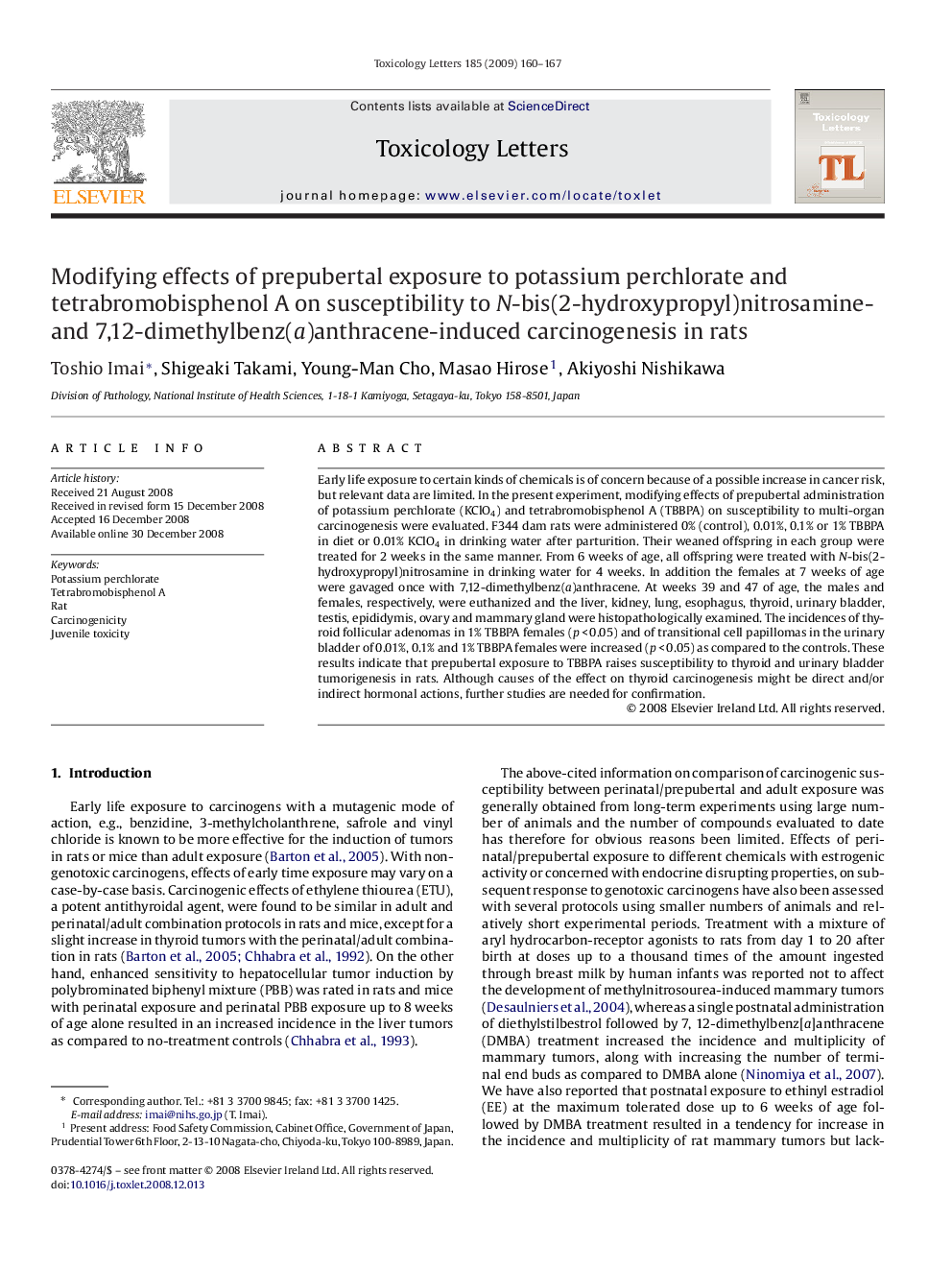| Article ID | Journal | Published Year | Pages | File Type |
|---|---|---|---|---|
| 2601081 | Toxicology Letters | 2009 | 8 Pages |
Abstract
Early life exposure to certain kinds of chemicals is of concern because of a possible increase in cancer risk, but relevant data are limited. In the present experiment, modifying effects of prepubertal administration of potassium perchlorate (KClO4) and tetrabromobisphenol A (TBBPA) on susceptibility to multi-organ carcinogenesis were evaluated. F344 dam rats were administered 0% (control), 0.01%, 0.1% or 1% TBBPA in diet or 0.01% KClO4 in drinking water after parturition. Their weaned offspring in each group were treated for 2 weeks in the same manner. From 6 weeks of age, all offspring were treated with N-bis(2-hydroxypropyl)nitrosamine in drinking water for 4 weeks. In addition the females at 7 weeks of age were gavaged once with 7,12-dimethylbenz(a)anthracene. At weeks 39 and 47 of age, the males and females, respectively, were euthanized and the liver, kidney, lung, esophagus, thyroid, urinary bladder, testis, epididymis, ovary and mammary gland were histopathologically examined. The incidences of thyroid follicular adenomas in 1% TBBPA females (p < 0.05) and of transitional cell papillomas in the urinary bladder of 0.01%, 0.1% and 1% TBBPA females were increased (p < 0.05) as compared to the controls. These results indicate that prepubertal exposure to TBBPA raises susceptibility to thyroid and urinary bladder tumorigenesis in rats. Although causes of the effect on thyroid carcinogenesis might be direct and/or indirect hormonal actions, further studies are needed for confirmation.
Related Topics
Life Sciences
Environmental Science
Health, Toxicology and Mutagenesis
Authors
Toshio Imai, Shigeaki Takami, Young-Man Cho, Masao Hirose, Akiyoshi Nishikawa,
